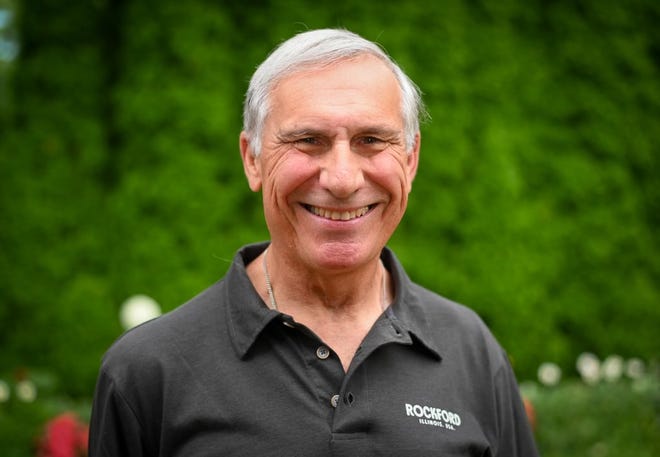Adequate mental health services are an important part of a community’s infrastructure — just as important as public safety, good roads and quality education. Without good physical and mental health, nothing else matters.
Mental health services had not been a priority in Winnebago County. The situation was so bad that a 2016 report by the Winnebago County Mental Health Advisory Committee warned of a mental health “emergency.”
It took four years to address that emergency. There should have been a sense of urgency to fix a situation that bad. Those who need services can’t afford to wait.
The state of Illinois contributed to the dire state of mental health services here.
After Singer Mental Health Center closed in 2012, the state was supposed to use about half the money saved by closing Singer for community-based programs. That didn’t happen. Instead, funding for mental health and substance abuse services declined.
More:Election: Supporters rally for sales tax that helps ‘anyone and everyone’ in Rockford area
It was imperative that a local solution be found.
The majority of Illinois counties have some type of behavioral health funding board, the most common being a 708 Community Health Board that operates with local property tax money. Winnebago County was the only urban area in Illinois without such a board.
Property taxes in the region and state are much too high so property taxes could not be seriously considered as an option.
Legislation passed in 2018 allowed counties to ask voters to approve a sales tax to finance mental health and substance abuse services. Winnebago became the first county to allow such a vote.
The issue was placed on the March 17, 2020 ballot, and voters resoundingly said yes to spending a half-cent on the dollar extra for their purchases to finance these important services.
Four years later, the funding made available because of that sales tax has had a huge impact on the community.
New programs have been created. Thousands of individuals now have access to services that didn’t four years ago. Access being the key word.
Programs are evidence-based, i.e., there’s research that shows they are effective.
The new programs have helped the general public as well. Emergency room visits because of mental health crises declined 53 percent last year, according to Dick Kunnert, vice president of the Mental Health Board. That means less of a wait for those who have physical reasons to go to an emergency room.
There were a lot of “wow” reactions from the audience during a mental health panel discussion Oct. 17 at Pilgrim Baptist Church. “Wow” 44 new programs that wouldn’t exist without the mental health sales tax funding. “Wow” 18,000 individuals served. “Wow” children especially need and are lacking services.
The sales tax also has helped create jobs. There are 165 more social workers today than there were in 2020. There is a critical need for more experts in the field: more social workers, more psychiatrists, more psychologists.
There are programs to help fill those needs.
You can read about the impact in a booklet put together by the Region 1 Planning Council. You can go online to r1planning.org/community-impact/wccmhb/ to see what has been accomplished.
You can learn more by watching four videos on the TransformRockford YouTube channel (youtube.com/@TransformRockford).
Jason Holcomb of R1 gives an overview of mental health services in one. Mary Trujillo, mental health program manager for the City of Rockford, talks about crisis response teams. Dr. Alex Stagnaro-Green of the University of Illinois College of Medicine, explains how a program to create social workers at the college works. The last video in the series is with Joan Lodge of Rosecrance who talks about the thousands of individuals with mental health and substance abuse challenges who have been helped by Rosecrance.
There’s a lot of work that still needs to be done, and it will take plenty of resources to get the job done well.
Extension of the sales tax is one of the issues for you to vote on Nov. 5.
Mental health services are not a luxury — they are an essential ingredient to the well-being of so many of our friends and neighbors.
Wally Haas is executive director of Transform Rockford. His email address is whaas@transformrockford.org

